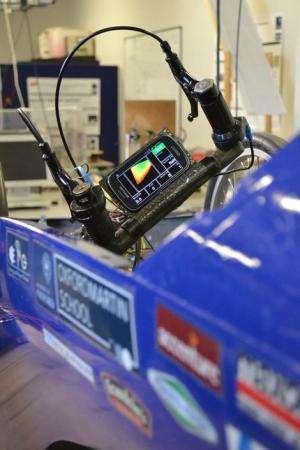How low battery can you go?

With batteries still struggling to pack the same power as petrol one of the great challenges for electric vehicles is extending their range.
A team led by researchers at Oxford University's Department of Engineering Science and The Oxford Martin School has been pushing the boundaries of what such machines can do with their prototype electric vehicle PEGGIE.
The PEGGIE crew had a successful debut at last year's Shell Eco-marathon Europe competition, a showcase for ultra energy-efficient vehicles built by student teams, and entered this year's event in Rotterdam on 19 May.
The Oxford team came seventh out of 36 in the main prototype electric vehicle endurance race, delivering a performance of 564 km/kWh, a 50% improvement on last year.
They also won the Technical Innovation Award ahead of nearly 200 other teams for developing an Android app that maps the efficiency of the motor in real time for the driver to optimise her driving style, a reconfigurable photovoltaic array that allows optimisation of the solar energy use, and a clutch mechanism that allows regeneration braking while free-wheeling.
More about the PEGGIE team here.
Provided by Oxford University



















